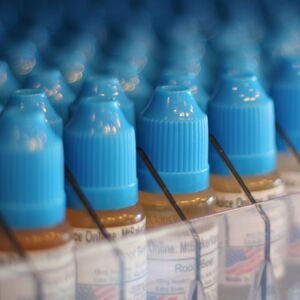Nicopure Labs, a leading manufacturer of American-made e-liquid, has filed a lawsuit in the U.S. District Court for the District of Columbia, challenging the Food and Drug Adminstration’s deeming rule that would subject e-cigarettes and other vaping products to more onerous restrictions than combustible cigarettes under the Tobacco Control Act.
In a press release, Nicopure Labs said it’s the first company to file such a suit.
In its court filing, Nicopure Labs contends the FDA’s rulemaking process violated the Administrative Procedure Act, and that the deeming rule violates the First Amendment to the United States Constitution.
“Back in 2009 Halo revolutionized the way e-liquid was manufactured and packaged, forever changing the Vape industry as few knew it,” said Jeff Stamler, CEO and co-founder of Nicopure Labs.
“Today Nicopure Labs is again at the forefront of the industry as revolutionaries, as Nicopure Labs leads the way in defense of our constitutional rights and for the future of the entire vaping industry and the American right to choose.
“We fully support reasonable regulation that protects consumers, accomplishes the public health priority to reduce the grave harm caused by conventional cigarette smoking, and allows businesses to survive and innovate for a greater public health vision for our society as a whole.”
“We are committed to responsible manufacturing based on superior product standards and stringent quality requirements. FDA’s rule does not protect the consumer from low-quality products; instead, it places a disproportionate and unjustified regulatory burden on compliant companies such as ourselves, who are determined to drive the industry to the highest standards of quality and innovation,” declared Jason del Giudice, CTO and co-founder.
“Today we turn to the justice system to protect our rights and the rights of our customers because we believe in its fairness”, added Nicopure Labs general counsel and chief compliance officer, Patricia Kovacevic. “The government’s role is not to regulate for the sake of regulation; regulation must be based on sound science and robust procedure, and it must accomplish certain public health goals.”

